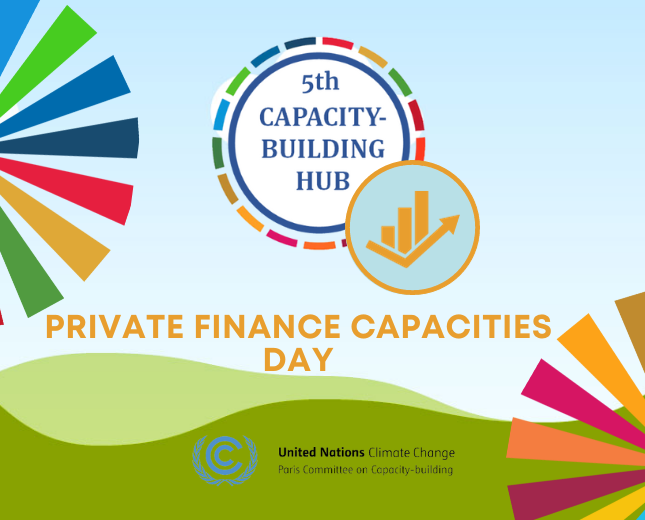Recording
Organizers
This session was organized by PPIAF, GIF, IFC
Background
Climate change is one of the most urgent and complex challenges of our time, requiring immediate action to mitigate greenhouse gas emissions and build resilience against irreversible changes, all while sustaining economic growth and accommodating an expanding global population. Already strained from COVID-19 recovery efforts, governments and public budgets are increasingly unable to address climate risks and achieve the goals of the Paris Agreement. These fiscal constraints underscore the need for private sector participation to bridge the funding gap and advance sustainable infrastructure development.
Public-Private Partnerships (PPPs) are powerful tools as they can provide well-informed and well-balanced risk allocation between public and private stakeholders, offering long-term visibility and stability for the duration of a contract, and compensating for climate change uncertainty through contractual predictability.
The World Bank has developed a suite of toolkits inclusive of both high-level and sector-specific support -The Climate Toolkits for Infrastructure PPPs (CTIP3) – that assists emerging market and developing economy governments in screening for climate risks and opportunities. With a focus on practicality, the toolkits integrate climate mitigation and adaptation approaches into the earliest phases of PPP advisory work and structuring thereby embedding climate mitigation and adaptation into national planning and mobilizing private sector investment for low-carbon and resilient infrastructure development.
At the last COP, the Umbrella CTIP3 was introduced in a workshop and high-level panel discussion that showcased the multisector applications of the toolkit. Building from that momentum, five (5) additional sector-specific toolkits—targeting the Wind and Solar Energy, Hydropower, Transport, Water and Sanitation, and Digital/ICT sectors— were published this year with more tailored guidance and tools for enabling private sector participation in low-carbon and resilient infrastructure in emerging markets and developing economies.
Objectives
This capacity-building event aimed to heighten awareness among infrastructure stakeholders and equip them with the necessary insights, guidance, and tools to embark on the journey of climate-smart Public-Private Partnerships (PPPs).
Structure
| Time |
Segment & Speakers |
| 5 mins |
Welcome
Astrid Manroth, Head, Global Infrastructure Facility
|
| 12 mins |
Fireside Chat between the World Bank’s Director of the Infrastructure Finance, PPPs & Guarantees Group and Meridiam’s CEO
-
Imad Fakhoury, World Bank’s Director of the Infrastructure Finance, PPPs & Guarantees Group
-
Thierry Déau, Meridiam’s CEO
|
| Interactive Capacity Building workshop |
| 8 mins |
Introductory Conceptual Presentation on the Climate Toolkits Modules and Sectors
Presenter:
Mariana Silva, Senior Infrastructure Finance Specialist, Global Infrastructure Facility
|
| 35 mins |
Panel: Showcasing real-world examples of successful climate-smart PPP projects reaching financial close
Moderator: Gisele Saralegui, Principal Investment Officer, Global Infrastructure Facility
Panelists:
-
Lina Osman, Regional Head of Sustainable Finance at Standard Chartered Bank
-
Sebastian Carranza, Climate Change Director, Ministry of Environment, Colombia
- Irene Ado-Dankwah, Head of PPP Unit at Ministry of Finance and Economic Planning and Economic Planning of Ghana (virtual)
|
Key Outcomes
- Tackling climate change is key to World Bank mission of reducing poverty and boosting shared prosperity. Private sector engagement and investment is needed to finance the green transition and strengthen resilience to climate change. PPPs can help maximize limited public resources by helping governments mobilize private capital, expertise, and innovation, and unlocking climate finance.
- Infrastructure plays a crucial role in achieving global sustainability goals, notably the Paris Agreement and Sustainable Development Goals (SDGs). However, this vital sector contributes significantly to environmental challenges, responsible for 79% of all greenhouse gas (GHG) emissions, with construction alone accounting for 25%.
- Developing nations face substantial gaps in infrastructure investment, requiring 4.5% of their GDP annually, with a staggering $15 trillion shortfall globally. The World Bank Group (WBG) is committed to addressing these challenges by mobilizing private capital, emphasizing sustainability, and integrating climate considerations.
- The private sector and Public-Private Partnerships (PPPs) are viewed as vital solutions, although long-term projects present challenges for investors. Evaluating costs and savings in climate investments proves challenging, yet the failure to address climate resilience may render projects non-bankable.
Resources
PPIAF, GIF & IFC slides
World Bank Sector-Specific Climate Toolkits
IFC Advisory
